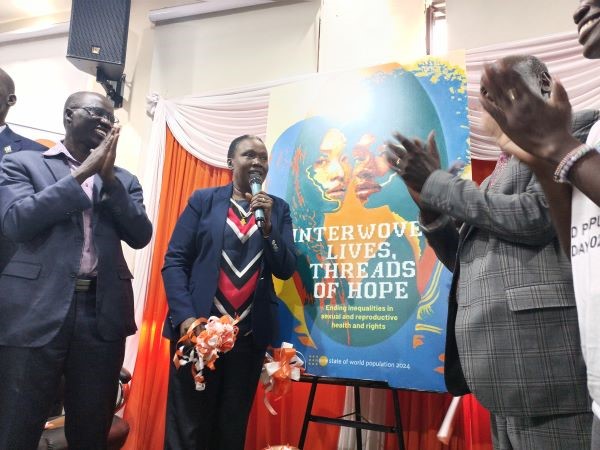By Bosco Bush
Minister of Interior, Angelina Teny, has emphasized the need to empower the National Bureau of Statistics (NBS) to enable the country to have quality, evidence-based data.
Speaking during the commemoration and the launch of the State of World Population Report, Teny stressed that the NBS should be “fully empowered” to gather, analyze, and periodically inform the executive in order to provide scientific-based public policies.
“We in the cabinet and more often enough initiate and generate the public policies. This is where the Bureau of Statistics should have periodic briefings with the executive,” Teny stated.
She noted that some policies are drafted based on foreign data due to the lack of sufficient data provision, and thus the NBS must be empowered to provide significant information.
“We should ensure that the Bureau of Statistics must be fully empowered. Because it’s the engine for generating this information that would lead to change in our country and in the lives of our people,” she emphasized.
Teny further stated that the availability of quality data would enable the government to make sound choices or decisions regarding any humanitarian support provided by the humanitarian agencies to the people.
The World Population Day commemoration was organized by the South National Bureau of Statistics, in collaboration with UNFPA.
South Sudan commemorated World Population Day on July 11, 2024, under the theme “Strengthening National Statistic System to Generate Demographic Data for Evidence-based Decision Making.”
The NBS is the official statistical agency of the Government of South Sudan, mandated by the Transitional Constitution to collect, analyze, and disseminate official economic, social, and demographic statistics.
World Population Day 2024, offers countries, societies and policymakers the chance not just to celebrate improvements in information gathering, analysis, and use, but also to interrogate whether the right data is being collected and at the right time as well as questions like; who is still going uncounted and unaccounted for? Is the data being used to inform decisions?




